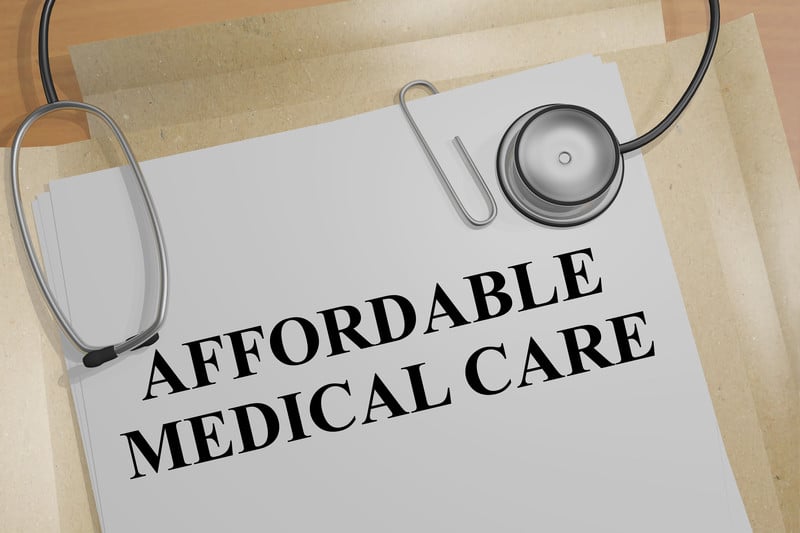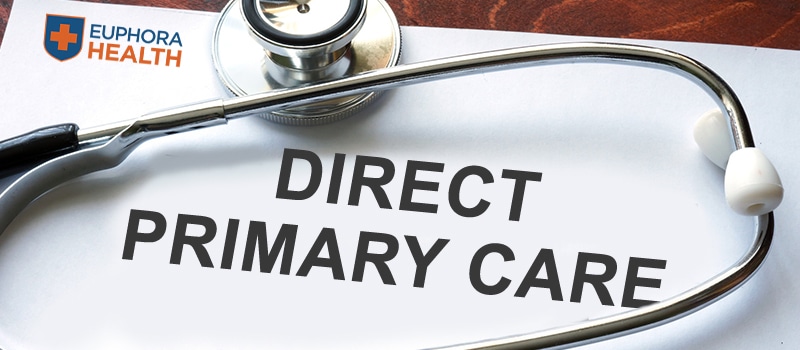Unlike the way most healthcare is provided today, Direct Primary Care centers on doctors spending more time and building closer doctor/patient relationships. A closer relationship means more personalized care and healthier, happier patients.
Commonly referred to by its acronym DPC, Direct Primary Care is a fast-growing way for family physicians to provide high-quality healthcare and it comes with an affordable, predictable price. Direct Primary Care has many advantages for family physicians, patients and companies that provide employee healthcare.

For the most part, Direct Primary Care returns us to the small town medical practice of the past. When a physician provided most everything patients needed and became a part of the fabric of their lives just as priests, pastors and teachers did. Back when your family doctor knew you, understood you and helped manage any medical challenges you had. They were available when you needed them. You could call them on the phone and they would even make house calls.
Today’s typical healthcare is mostly a cold and sterile experience with long wait times for shorter and shorter visit times. And that’s after waiting 2 weeks to get an appointment! Often patients see many different doctors or are shuffled off to specialists, which has caused a rise in conflicting diagnoses, prescriptions and often, poor health outcomes. In today’s healthcare system, it’s practically impossible to develop a close relationship with a primary physician and have a real partner in your health.

Are you too sick to go to the doctor’s office or can’t take time off from work? Want to reach your doctor by phone or have them stop by the house? Not likely today. So what happened?

Well, don’t blame the doctors, after all, they worked hard to become doctors and have a passion to help people live happier, healthier lives. The practice of medicine has slowly changed over time to adapt to the rise of the Health Insurance market that eventually took over healthcare. For physicians, this has meant more staff to process and handle insurance billing properly. In order to pay for that extra staff, more patients need to be seen.
Well, don’t blame the doctors, after all, they worked hard to become doctors and have a passion to help people live happier, healthier lives. The practice of medicine has slowly changed over time to adapt to the rise of the Health Insurance market that eventually took over healthcare. For physicians, this has meant more staff to process and handle insurance billing properly. In order to pay for that extra staff, more patients need to be seen.

More patients mean a bigger office and less time for physicians to spend with patients. As a result, many physicians can no longer afford to practice alone, so they have teamed together creating physician groups to try and offset some of the challenges created by health insurance companies. Even in group practices though, they have to hustle through patients to cover costs. It’s not an ideal scenario for anyone. Direct Primary Care changes this scenario.
By eliminating the need for physicians to follow, time-consuming insurance company billing and payment procedures, they can reduce overhead and have more time to spend with patients and build closer relationships. They get to do what they wanted when they set out to become doctors! It also allows for the patient and the doctor to decide what is the best treatment, instead of a non-physician claims adjuster far away.
The American Academy of Family Physicians, notes the “defining characteristic of DPC practices is that they offer patients the full range of comprehensive primary services, including routine care, regular checkups, preventive care, and care coordination in exchange for a flat, recurring retainer fee that is typically billed to patients on a monthly basis.”
The monthly fee is often referred to as a membership, but typically there are no long-term commitments. Direct Primary Care monthly fees are very affordable and range from $30-$90 depending on age. The monthly fee includes unlimited visits with no copays or deductibles and no-cost or low-cost labs, procedures and often medications too.

If they don’t dispense medications they typically have ways for you to get prescriptions filled affordably. DPC doctors also believe in complete transparency in prices, so you know what your costs are going to be in advance. Often you will find a list of prices on their website. The monthly fee and any additional costs are accepted instead of Insurance.
No Insurance Accepted!
That may be a scary phrase to most people that have always believed health insurance is a requirement in order to see a physician affordably. While health insurance does have its place, especially for catastrophic health events, DPC provides the day-to-day ongoing healthcare, which is key to a healthy life.

Direct Primary Care also allows patients unrestricted access to their doctor via phone, email, text or even video conference. It makes the waiting room obsolete. If you need to see your doctor, you can get same day or next day appointments with essentially no wait time at all. Some doctors even offer home visits. Yes. House calls!
What if a Specialist is Needed?
Direct Primary Care physicians will usually have a large network of highly qualified and experienced specialists and surgeons they can access and consult with through secure electronic means and often get advice within a day or sooner and at no additional cost to the patient. This means you’re not only getting second opinions from specialists quickly, you don’t have to make another appointment with yet another doctor and wait again! Typically, your Direct Primary Care doctor can implement a course of treatment recommended by a specialist. If you need to physically see a specialist, Direct Primary Care physicians can recommend a trusted one close to you that best fits your needs and requirements. However, the cost to visit a specialist in person is not included in a Direct Primary Care membership.
What about the Costs of Specialists, Hospital Stays and Emergencies?
Generally, 90% of a person’s healthcare needs can be taken care of by a Direct Primary Care Physician.
A DPC membership does not include additional expenses in the event a specialist needs to be seen or emergency room visits or hospital stays are required. To cover these expenses, a major medical policy is recommended to combine with your DPC membership. Typically, the cost of both a major medical insurance policy and a DPC membership is significantly less than the cost of a full coverage health insurance policy.
There is also a way to save on major medical expenses other than buying a policy directly from a health insurance company. You can combine Direct Primary Care with a Health Sharing Plan. These are organizations that allow individuals to share medical expenses in a predictable manner. There are even some that offer discounts to DPC members. You can find a list of Health Sharing Plans on the Euphora Health Website and learn more about them.
By combining Direct Primary Care with a major medical policy or health sharing plan, you get affordable high-quality healthcare with a primary doctor who knows you, is accessible when you need them and you are covered for unexpected medical expenses in addition to meeting the requirements of the Affordable Care Act (“Obamacare”).
Can Employers Benefit from Direct Primary Care?
Yes! Direct Primary Care has many advantages for Employers that provide health insurance to their employees. Due to DPC’s more personalized care and physician accessibility, especially with Virtual Direct Primary Care, self-funded companies have experienced a reduction in healthcare claims of up to 35% and reduced absenteeism caused by health issues and time away from work to see doctors. For smaller companies, having a self-funded insurance plan may sound out of reach. However, with DPC and Stop Loss Insurance, companies with as few a 10 employees can enjoy the benefits of providing high-quality employee healthcare at a lower, more controllable cost. This also allows employee benefits to increase and provide a recruiting advantage to appeal to top-tier prospects.
Direct Primary Care is an ideal way to have affordable and high-quality healthcare. It restores the practice of medicine to its core values of being a patient-centered practice that allows for fulfilled physicians and healthier patients while adding financial controls for companies!
Want To Learn More About How You Can Benefit From Self-Funded Health Plans?

